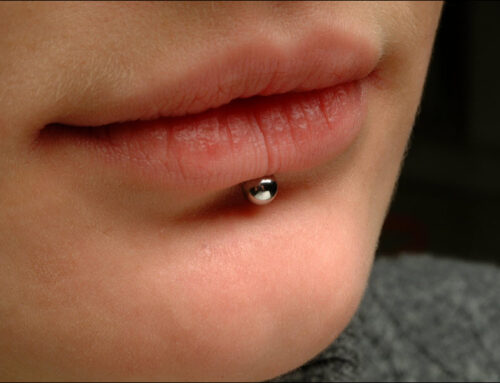Periodontal disease affects the gums and supporting structures of the teeth. It starts with plaque buildup, leading to gum inflammation and infection. Without treatment, it progresses to bone loss and tooth damage. Poor oral hygiene, smoking, and health conditions increase the risk of periodontal disease. Redness, swelling, and bleeding gums signal early gum disease (gingivitis). Preventing periodontal disease requires proper brushing, flossing, and regular dental checkups. Early treatment stops the disease from progressing and protects overall oral health. Let’s explore the risks of periodontal disease and how to prevent it.
Poor Oral Hygiene Increases Risk
 Inadequate brushing and flossing allow plaque and tartar to build up along the gumline. Plaque contains bacteria that produce toxins, irritating the gums. Over time, plaque hardens into tartar, which brushing cannot remove. Tartar causes gum inflammation (gingivitis), leading to redness, swelling, and bleeding. Without treatment, gingivitis progresses to periodontitis, where bacteria attack the bone and tissues supporting the teeth. Brushing twice a day and flossing daily prevent plaque buildup. Regular dental cleanings remove tartar and protect gum health. Proper oral hygiene reduces gum inflammation and prevents early-stage periodontal disease. Clean gums improve overall oral health and comfort.
Inadequate brushing and flossing allow plaque and tartar to build up along the gumline. Plaque contains bacteria that produce toxins, irritating the gums. Over time, plaque hardens into tartar, which brushing cannot remove. Tartar causes gum inflammation (gingivitis), leading to redness, swelling, and bleeding. Without treatment, gingivitis progresses to periodontitis, where bacteria attack the bone and tissues supporting the teeth. Brushing twice a day and flossing daily prevent plaque buildup. Regular dental cleanings remove tartar and protect gum health. Proper oral hygiene reduces gum inflammation and prevents early-stage periodontal disease. Clean gums improve overall oral health and comfort.
Smoking and Tobacco Use Damage Gums
Smoking weakens the immune system, reducing the body’s ability to fight gum infections. Tobacco use reduces blood flow to the gums, slowing healing. Smokers have a higher risk of developing deep gum pockets and bone loss. Nicotine reduces saliva production, increasing plaque buildup and bacterial growth. Smoking also masks early signs of gum disease, delaying diagnosis and treatment. Quitting smoking improves blood circulation and gum health. Better blood flow increases healing and reduces gum inflammation. Tobacco-free gums respond better to treatment and improve long-term oral health. Stopping smoking reduces the risk of severe periodontal disease and tooth loss.
Health Conditions and Medications Affect Gum Health
Diabetes, heart disease, and autoimmune disorders increase the risk of periodontal disease. High blood sugar levels in diabetics feed harmful oral bacteria, increasing inflammation. Medications for high blood pressure and depression reduce saliva production, increasing dry mouth and plaque buildup. Hormonal changes during pregnancy and menopause increase gum sensitivity and inflammation. Managing health conditions reduces the impact on gum health. Drinking more water and using sugar-free gum increase saliva flow. Regular dental checkups help monitor changes in gum health. Controlling underlying health issues improves gum strength and reduces inflammation. Better overall health strengthens the body’s ability to fight gum infections.
Stress and Teeth Grinding Weaken Gums
Chronic stress reduces the immune response, making gums more vulnerable to infection. Stress also increases teeth grinding and clenching, which puts pressure on the gums and jawbone. Grinding creates small cracks in the enamel, allowing bacteria to enter the gumline. Wearing a night guard reduces grinding pressure and protects teeth and gums. Stress management techniques like deep breathing and exercise improve immune function and reduce inflammation. Better stress control strengthens the body’s response to gum infections. Reduced grinding improves gum stability and overall comfort. Stronger gums resist bacterial damage and improve long-term oral health.
Nutritional Deficiencies and Poor Diet Impact Gum Health
Lack of vitamin C weakens gum tissue and slows healing. Deficiency in calcium and vitamin D reduces bone strength, increasing tooth loss risk. High-sugar diets increase plaque formation and bacterial growth. Acidic foods erode enamel, making gums more sensitive to bacteria. Eating nutrient-rich foods like leafy greens, dairy, and lean proteins strengthens gum tissue and bone. Drinking water reduces plaque buildup and cleans the mouth naturally. Reducing sugary snacks and drinks protects gums from bacterial damage. A balanced diet improves immune response and gum strength. Proper nutrition supports long-term gum health and better healing.
How to Prevent Periodontal Disease
Brushing twice a day with fluoride toothpaste removes plaque and prevents gum inflammation. Flossing daily removes debris between teeth and reduces bacterial buildup. Using an antibacterial mouthwash reduces plaque and improves gum health. Regular dental checkups allow early detection and treatment of gum issues. Professional cleanings remove tartar and improve gum strength. Quitting smoking and reducing stress protect gum health and immune function. Eating a balanced diet improves healing and reduces inflammation. Staying hydrated and chewing sugar-free gum increase saliva flow and reduce plaque. Consistent oral care prevents periodontal disease and protects overall dental health.
Periodontal disease results from poor oral hygiene, smoking, health conditions, and stress. Plaque buildup causes gum inflammation and bacterial growth. Smoking weakens gum tissue and slows healing. Stress and teeth grinding increase gum damage and inflammation. Nutritional deficiencies and poor diet weaken gum strength and increase sensitivity. Preventing periodontal disease requires regular brushing, flossing, and professional cleanings. Quitting smoking, managing stress, and improving diet strengthen gum health. Early detection and treatment prevent progression and tooth loss. Proper gum care ensures healthier teeth, better breath, and improved overall comfort. Investing in gum health prevents long-term dental complications.





